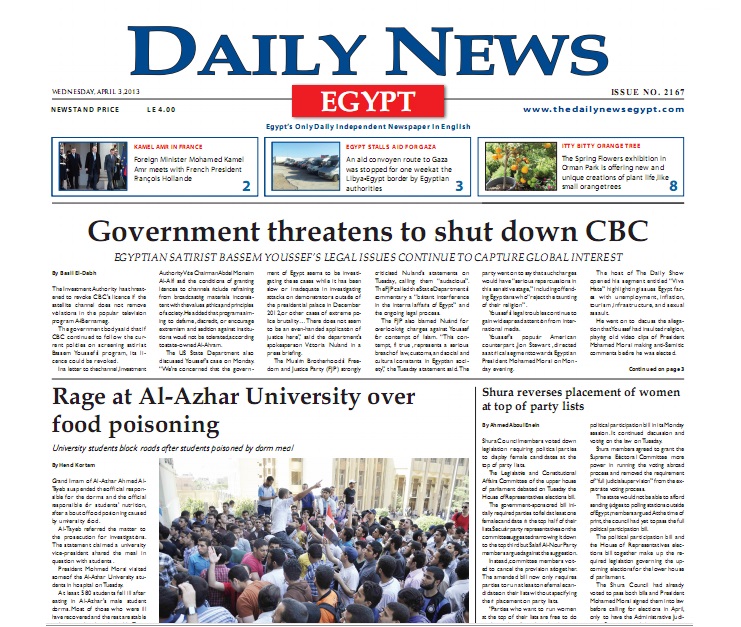CAIRO: Islamists will play an influential role in post-Hosni Mubarak Egypt but are unlikely to dominate politics or government in the foreseeable future.
The military has said Egypt will not become another Iran or Gaza, both ruled by Islamists, other forces will compete for the support of millions of undecided voters and new Islamist groups are challenging the established Muslim Brotherhood.
For decades Egypt’s biggest Islamist movement, the Brotherhood has so far been modest in its ambitions, trying not to alarm other Egyptians, the military rulers and Western governments that supported Mubarak’s rule.
For now, the group says it will not seek the presidency, the all-powerful position held by Mubarak for 30 years.
At most, the Brotherhood may have some ministers in a new government and is likely to emerge as a vocal bloc in a new parliament that will write a new constitution.
Islamists have been better positioned than others to exploit new freedoms, mobilizing through long established networks, grabbing local headlines and alarming their opponents.
Concerns have been exacerbated by a handful of acts of hardline Islamist vigilantism which led the generals to declare Egypt will not become an Iran-style theocracy.
"They are quite wary and reluctant about allowing the Islamists to dominate the political system," said Mustapha Al-Sayyid, a political scientist at Cairo University.
"They will try to maintain a political system that enjoys the support of the vast majority of the people."
But what the majority thinks is not clear in a country where until recently the idea of a fair election was pure fantasy.
Some hardline Islamists forecast their movement will dominate within 10 years. But Islamists with experience of Egypt’s electoral politics say they will only ever be part of a diverse spectrum, winning perhaps up to a third of the vote.
Conscious it is not everyone’s choice, the Brotherhood has shown restraint since Mubarak was toppled on Feb. 11.
The group says it wants to give other forces the chance to organize before competing fully for power.
Quite how many seats it will contest in a September parliamentary election is still unclear. One leading Brotherhood figure has said the group could field candidates for as many as 49 percent of the seats. Others have said it will be less.
The movement founded in 1928 faces fresh challenges in the new Egypt, including dissent in its own ranks and the emergence of new Islamist parties likely to draw the support of voters who would otherwise have backed the Brotherhood.
At least one leader has quit the group and is planning to set up his own party. There are also grumblings of discontent among the group’s youth activists.
The wider Islamist movement includes parties being set up by ultra-orthodox Salafis, part of the Islamist movement which has in the past taken up arms against the state.
Salafi groups such as Al-Gama’a Al-Islamiya are mobilizing publicly for the first time since the 1970s. They say they are committed to peaceful activism.
Military doesn’t see Brotherhood dominant
There is also the Wasat Party, set up by a former Brotherhood member who likens his ideology to that of Turkey’s ruling AK Party.
Amr Moussa, a veteran diplomat and a leading contender for the presidency, has said radical Islamist groups are too weak to take power, though an "Islamic element" will play a role.
Mubarak kept tight control over politics, allowing only his ruling party and a handful of tame opposition groups to function. The Brotherhood was formally banned though allowed to operate within tightly controlled limits.
"When you talk to the military about this, they tell you: ‘We are not concerned. We believe [the Brotherhood] are part of Egypt, they will have their day at the polls but they will not dominate in the results,’," a Western diplomat said.
"When there is a big choice that is wide open, [the military] does not anticipate they would do very well. There are many in Egypt that are much more nervous," the diplomat said.
Since Mubarak was toppled, anecdotal evidence has given the Islamists’ opponents some cause for cheer: Brotherhood candidates have not done well in recent student elections.
Experts on Egyptian politics also expect local notables, many of them formerly associated with Mubarak’s ruling party, to emerge as a strong, independent bloc in the next parliament.
Mohamed Habib, formerly the Brotherhood’s deputy leader, says the group will win no more than 25 percent of the vote in a free and fair election.
Habib was responsible for the Brotherhood’s parliamentary election campaign in 2005, when the group competed for about a third of the seats. The election was far from perfect but two out of three rounds of voting happened in relatively free conditions and the group emerged with 20 percent of the seats.
He said about 2.8 million people voted for the Brotherhood in 2005, a number believed to include many people voting out of protest rather than a commitment to Islamism. Experts believe turnout in this year’s election could be close to 30 million.
Habib said: "The size of the Islamic movement, in all of its factions, is very small and does not represent much at all when compared to the Muslim public." –Additional reporting by Shaimaa Fayed, Dina Zayed


